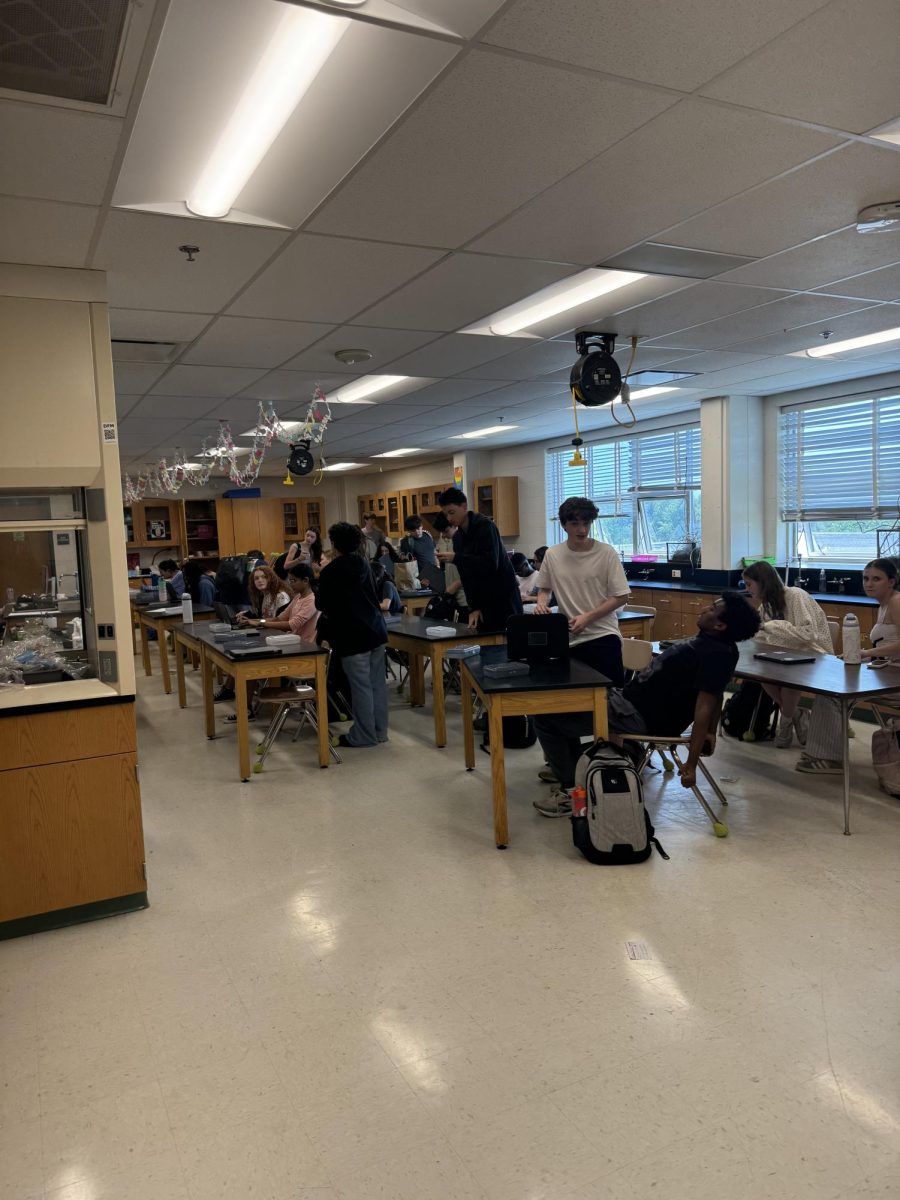In the high stress environment of our area, it can be easy to fall into cycles of depression or anxiety. But when mental health struggles get out of hand and start affecting the day-to-day roles that we have to fulfill, it is important to find a way to cope.
At the end of February, a Pitch survey of over 600 respondents revealed that more than 1 in 4 students take or have taken medications such as Prozac, Zoloft and Xanax. To give you some perspective, that is around 30% of surveyors. Plus, when students were asked if they knew peers who take medication for their mental health, 58.4% said “yes.”
The fact of the matter is that for the most part, mental health struggles are something that nearly all high schoolers experience. The stresses of managing a full schedule, extracurricular responsibilities and a social life can feel like a lot and without proper coping mechanisms, this balancing act can get dangerous. But when these issues become so unbearable that every component of somebody’s day is being damaged by their prevalence, medical attention is absolutely necessary. For some, medication is the answer.
“I started taking Zoloft because I was having extreme depressive symptoms including suicidal thoughts… [depression] is a daily struggle… but it was a matter of me literally committing suicide versus having a daily struggle,” an anonymous senior said.
That initial decision to take medication isn’t easy either and many struggle to take that necessary step for fear of both the medical consequences and the social ones as well.
“I feel like taking medication for mental health issues can sometimes be seen or feel like a weakness. And I think this is why some people are embarrassed of taking medicine and sometimes avoid taking it to prove to themselves or others they are not ‘weak’. When no one is weak for helping themselves,” an anonymous surveyor said.
Many medical professionals will emphasize that medication alone can never be the sole solution to one’s mental health issues. Therapy in conjunction with medication is often what is needed. All interviewees agreed on this one.
“I do both. I think that therapy is the best way to heal because not everyone responds well to medication but the combination of the two is extremely helpful for me,” an anonymous junior said.”
In addition, if you’re currently thinking about taking medication, it’s important to understand what it’ll do for you in the long term. There is a common misconception that mental health medications immediately cure anxiety or depression, that suddenly by taking a pill a few times a day all problems melt away. But what is important to understand is that medication only lessens your symptoms, it does not eliminate them.
“Waiting so long for it to kick in was difficult…medication basically made it possible for my work to pay off in a sense and I still struggle…would I say that there has been an improvement? Yes, but it didn’t start right away, and I still have to work really hard at it. That’s why I say that medication can be really helpful but you need to know what you’re doing,” an anonymous senior said.
For people with anxiety, the same applies.
“I definitely have breakthroughs throughout the month which is why I go up in dose. The normal anxiety attack or whatever would be at like a 7 out of 10 without the medicine but with the medicine, it kind of lowers it to a 4. It’s still there, but it’s not as heavy. My mind kind of stresses about things that are more real problems to be stressed about and not things that my mind just comes up with to be stressed about now,” an anonymous sophomore said.
And outside of anxiety or depression, those with ADHD find that experimentation and patience is key to finding the right dosage and medication.
“I started on Concerta and I did not have the right doctor and she kept making the dosages higher. I was 10 and my body couldn’t really handle it like that. I started failing school and then I started taking new medicine. It took a long time and I’m still not really sure if I’m on the right one but I’m doing better on it,” freshman CJ MacDonald said.
Despite the inability of medication to completely eliminate mental health conditions, it can be life changing for so many who are suffering as it lessens the everyday presence of their condition.
Freshman Maya Weissman started taking Prozac for her depression three years ago and can attest to how beneficial medication can be.
“I think it’s really important to reach out. While there’s always going to be the underlying fear of no one believing you, or trying to refute it, someone will be there for you. And medication definitely helps,” Weissman said.









